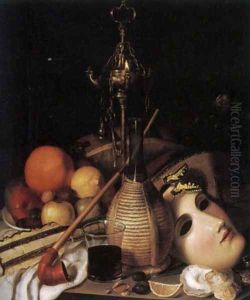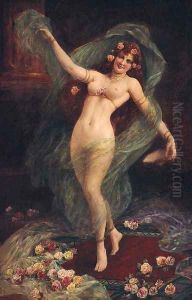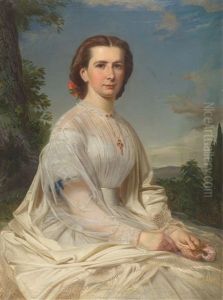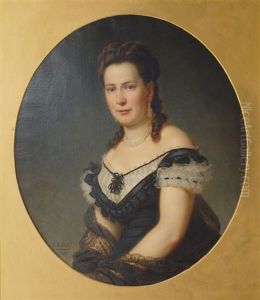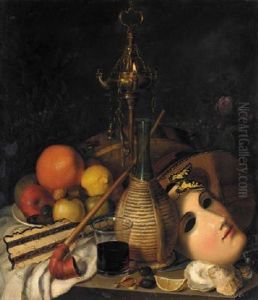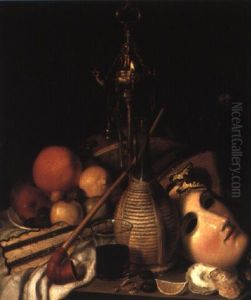Friedrich August Schlegel Paintings
Friedrich August Schlegel was a German poet, literary critic, philosopher, philologist, and indologist, who was a notable figure of the German Romantic movement. Born on September 27, 1772, in Hanover, then part of the Holy Roman Empire, Schlegel was the younger brother of the philosopher Karl Wilhelm Friedrich Schlegel. He was educated in theology at the University of Göttingen but quickly turned his attention to literature and philosophy.
Schlegel was instrumental in the development of Romanticism, which emphasized individual creativity and the importance of cultural history. His early work, including his critical fragments and essays published in the journal 'Athenaeum', which he founded with his brother in 1798, helped to define the Romantic era's aesthetic and literary principles. Schlegel's lectures on art and literature were highly influential, and his translations of Shakespeare into German were pioneering, bringing the English playwright's work to a wider German audience.
In addition to his literary contributions, Schlegel was also a pioneering figure in the field of comparative linguistics and the study of Indo-European languages. He is considered one of the founders of modern philology and comparative linguistics due in part to his observations of the commonalities between Sanskrit and European languages. This insight laid the groundwork for the development of historical linguistics.
Later in life, Schlegel converted to Catholicism and his writings took on a more religious and conservative tone. He also served as a diplomat in the service of the Austrian Empire and continued his scholarly pursuits until his death on May 12, 1829, in Dresden. Schlegel's legacy as a critic, thinker, and a central figure of German Romanticism remains significant today, with his ideas having influenced a wide array of fields, from literary criticism to philosophy and linguistics.
